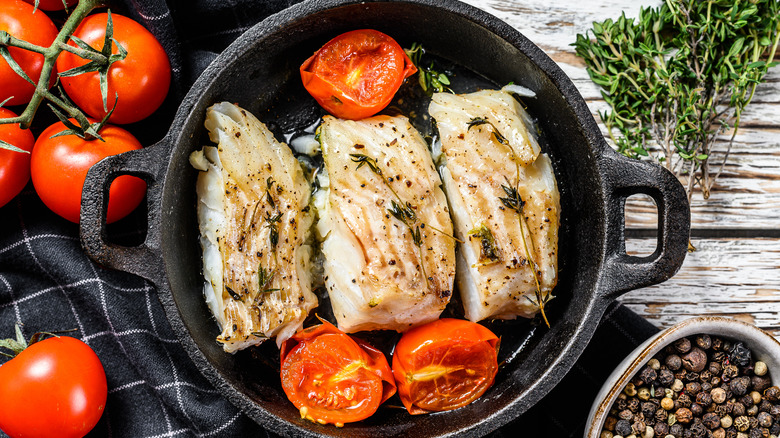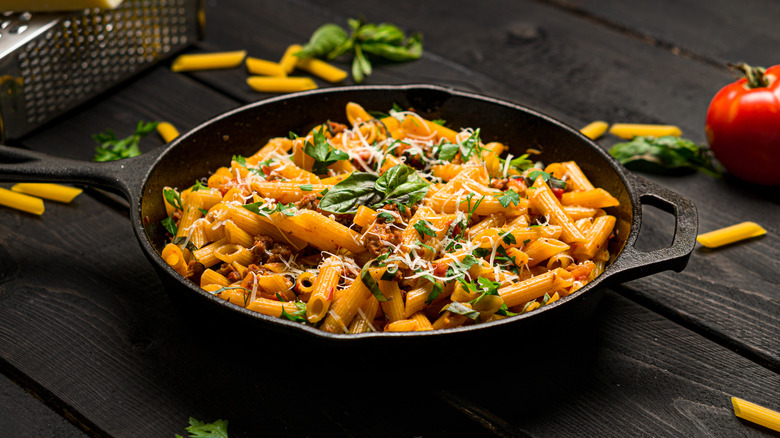How Acidic Foods Can Affect Your Cast Iron Pan
When properly maintained, the durable cast iron pan is a long-lasting and reliable kitchen tool. However, many home cooks worry about cooking acidic foods in their cast iron cookware. Some say that cast iron pans give high acid foods, like a tomato sauce, a metallic taste. Others warn that acidic foods ruin the pan's seasoning. Seasoning is the layer of solidified oil that gives a cast iron pan its natural non-stick surface (via Lodge). While tomatoes, citrus, and alcohol are commonly-known acidic foods, even fish and eggs are high in acid, says American Skillet Co. So it's helpful to know before you begin cooking whether your food and pan are protected.
Acidic food will indeed break apart the pan's metal molecules. These molecules can leak into your food and give it an undesired metallic taste, reports Epicurious. But before you separate acidic foods from cast iron pans forever, there are a few things to consider.
Whether your pan is seasoned or unseasoned will make a big difference. Unseasoned pans have no protective layer of oil. Because of that, acids can break down the pan's metal more quickly (per American Skillet Co.). If your pan is seasoned, you have more flexibility. So, if you just purchased a brand new and unseasoned pan, you may want to avoid acidic foods for the first few uses as you build up the seasoning. That said, acidic foods are not off the table.
Well-seasoned pans allow for quick high-acid recipes
A cast-iron pan's seasoning creates a buffer, at least temporarily, between acidic food and the pan's metal, explains Southern Living. So, with a seasoned pan, you can cook with foods like tomatoes and wine up to a point. Still, when exposed to acids for long periods, the seasoning's oil can thin and break down, says Epicurious. In the end, it comes down to timing.
America's Test Kitchen has pinned down an approximate time to remove your acidic food from a cast-iron pan before the metallic taste occurs. They cooked a tomato sauce in a seasoned skillet, taste-testing it every 15 minutes. The metallic taste only occurred after about 30 minutes, giving you some wiggle room. A dish that requires a quick splash of lemon or vinegar might be ok. In contrast, a recipe that requires extended periods of simmering may point to other cookware as a better option.
Immediately after cooking, it's also essential to remove acidic foods from the cast-iron skillet. Doing so prevents the unwanted metallic taste from leaking into the sauce as it rests in the pan (America's Test Kitchen). The good news is that even if acidic food breaks down your seasoning, it's easy to fix. Simply re-season your pan, and you're good to go (via American Skillet Co.).

